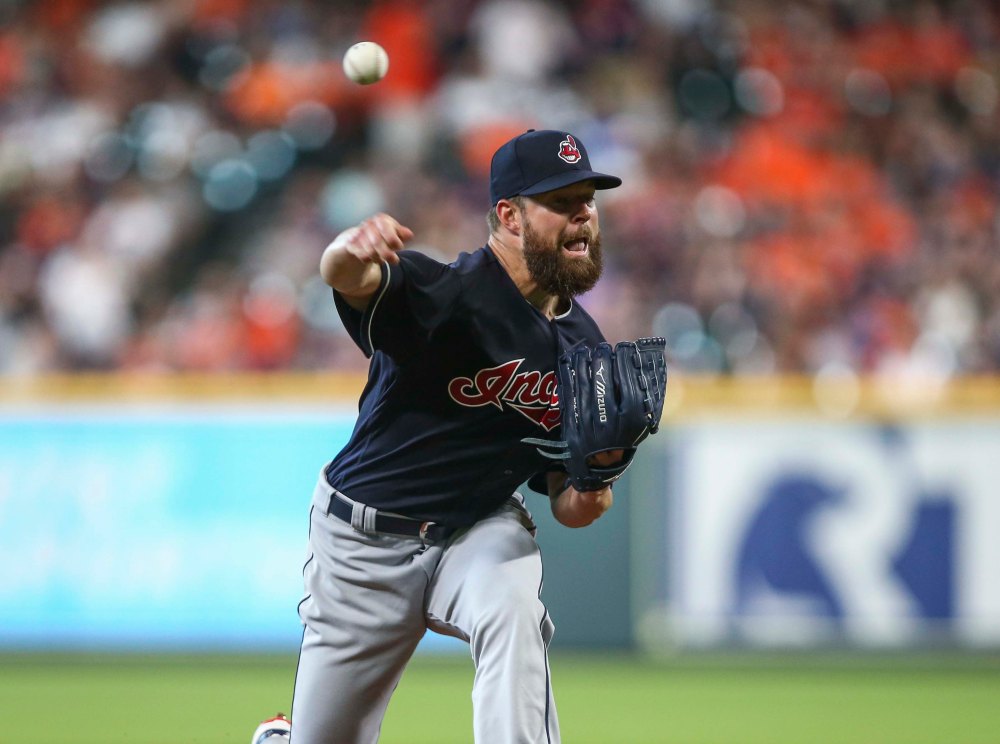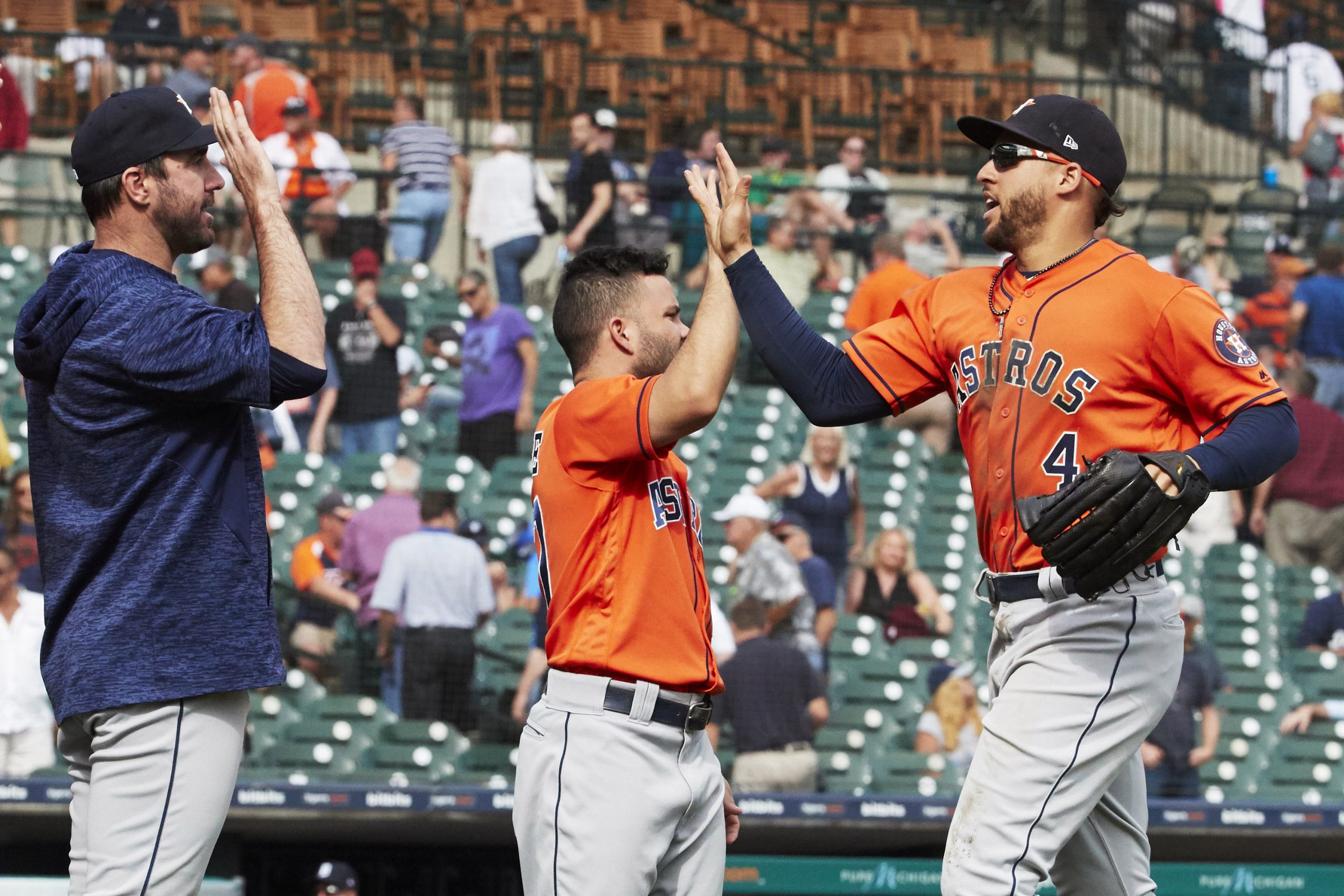Heading into the 2018 season, no teams were greater favorites to win the AL pennant than the Indians and Astros. Cleveland had the best record in 2017 before being ousted from the play-offs in the first round by New York while Houston took home their first World Series championship. Now, the incredible season of the Red Sox and their long term rivalry with the Yankees has pushed this series to the backburner as we finally get to see the series that everyone expected in the 2017 ALCS.
Game 1, October 5: Corey Kluber vs Justin Verlander, 2:05 PM
Minute Maid Park
Game 2, October 6: Carlos Carrasco vs Gerrit Cole, 4:37 PM
Minute Maid Park
Game 3, October 8: Dallas Keuchel vs Bauer/Bieber
Progressive Field
Game 4, October 9: If necessary, at Progressive Field
Game 5, October 11: If necessary, at Minute Maid Park
The Indians and Astros were great teams all around this year, coming in fifth and sixth in offensive runs above average in all of baseball and first and third in pitching WAR, but the single most astounding aspect of both teams is the starting rotation.
Game one alone features the top pitcher in the American League (by fWAR, third best in MLB) and the fifth best. In fact, going back to 2006 (Verlander’s rookie year), Verlander and Kluber rank first and sixth in the AL in fWAR despite Kluber starting his career in 2011. This elite level of pitching will be exemplified in this series, but can be found all around the play-offs with 8 of the top 15 pitchers in all of baseball since 2006 participating (three others have retired).
To start, the season put together by Verlander this year has been nothing short of incredible. At 35 years old, he not only is the probable Cy Young, but had the second best fWAR, second best ERA and best K/9 of his already incredible 14 year career. In addition, unlike his only bad post-season (2011), he only threw 214 innings during the regular season, so he should have plenty left in the tank.
The Indians may have one advantage, however. While pitcher vs team stats are generally worthless, Verlander has pitched 324.2 innings against the Indians and the core of the offense has been around since 2011, so these are generally the players he has faced so many times over the years. The Indians veteran hitters are often more successful against pitchers they are familiar with and they have pushed him to a 4.71 ERA, his worst against any team he has faced at least 15 times.

Facing him in game one will be the 2017 Cy Young winner, Corey Kluber, another candidate for the 2018 award. Kluber is only three years younger than Verlander, but has about 1,400 fewer innings in his career. Kluber saw his strike out numbers dip this year as he focused on limiting damage rather than getting swing and misses and posted a career (and AL) best 1.42 BB/9 rate. While nowhere near as significant, Kluber has a 2.83 ERA and 11.5 K/9 in 60.1 innings against the Astros.
As mentioned before, game one will just be an appetizer for a series that will feature the number two pitcher in the AL, Gerrit Cole, against the number six, Carlos Carrasco in game two and, most likely, the number three pitcher in the AL, Trevor Bauer, against the number nine pitcher, Dallas Keuchel, in game three. Even with this the Indians have number eight pitcher Mike Clevinger available for game four or out of the bullpen while the Astros have number 13 Charlie Morton. Overall, the top ten starter list for the AL looks like a ranking of Indians and Astros pitchers with Luis Severino and Blake Snell thrown in for fun.
As a whole, the Indians pitching staff set a new MLB record for strike outs in 2017 and the Astros blew that away this year with 1,687 of their own. Before you think this series will be completely dominated by pitching, note that the Indians (18.9%) and Astros (19.5%) are the two teams least likely to strike out in all of baseball offensively. Both teams walk fairly often as well, so the pitchers who are greatly dependent on getting ahead early and getting hitters to swing wildly at breaking pitches out of the zone may be significantly less effective than they normally are.
To this point, the two teams have appeared nearly identical, but there are two major facets that separate them. The first aspect is the bullpen, where the Astros have a huge advantage. While a few teams have been successful while regularly throwing bullpen games or using openers, the Indians are one of few old school teams where they need their starters to stick around for the long haul. Luckily for them, they have five reliable starters and will be carrying just a six man bullpen.
This six man pen will feature Cody Allen, Andrew Miller, Brad Hand, Oliver Perez, Adam Cimber and Dan Otero, a group worth 1.3 fWAR compared to the 0.4 the pen as a whole was worth this season. While still not good, it is not quite embarrassing and with Bieber and Bauer available, it will likely look completely different than during the regular season.
The Astros don’t have to mix things up as they had the third best bullpen in baseball (2nd in AL) during the regular season. They have two pitchers fully capable of finishing out a game in Hector Rondon and Roberto Osuna each of whom had a FIP below 3.00, a K/9 over 10.0 and at least ten saves. Forgetting saves, Collin McHugh was the team’s top reliever with a 1.99 ERA with a 11.7 K/9 through a team high 72.1 innings. The one advantage the Indians could have against this pen is that all of the top pitchers are right handed and the Indians feature a largely left handed or switch hitting line-up.
The aspect of the team that favors Cleveland over Houston is defense, particularly in the infield. Francisco Lindor is one of the best defensive short stops in baseball and the Indians improved their infield late in the season by adding Josh Donaldson at third and moving Jose Ramirez to second. This could hurt the team in the outfield as Jason Kipnis looks to be the starting center fielder with the slow moving Michael Brantley in left and Melky Cabrera in right, so it will be up to the pitching staff to keep the ball on the ground or to avoid contact entirely.
The Astros have the opposite problem as Jake Marisnick has been solid in center field, but Jose Altuve and Alex Bregman have been below average at second and third. While Carlos Correa is slightly above average at short stop, he can’t compare to Lindor who has saved 21 runs just through his defense alone.
In the end, this series could simply come down to who gets a hold of the few bad pitches that are likely to be thrown. It’s unlikely either team will be able to string together a bunch of singles against such accomplished pitchers, so a home run first approach might be the way to go. Working deep into counts can be dangerous against these pitchers, but for the Astros especially it will be the way to go. If they can push either Kluber or Carrasco out of the game early in games one or two, they could force Terry Francona to use Bauer, the Indians most dominant pitcher in 2018, as a reliever rather than have him start a pivotal game three.
Add The Sports Daily to your Google News Feed!
